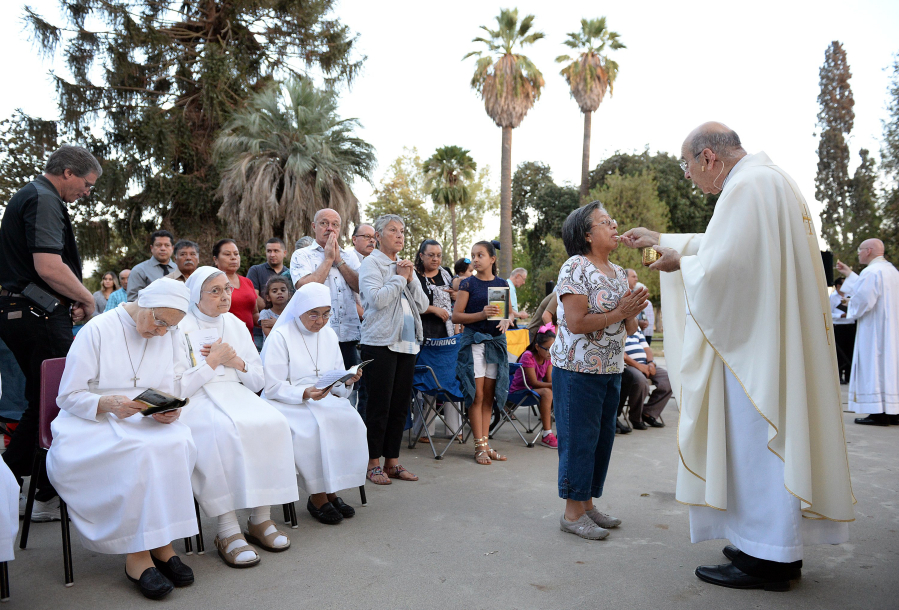“But there’s another side to this story,” Dreiling continues, “that we cannot and must not shy away from or allow to stay hidden from our view. All this that we see around us — the plants, the trees, this park, the 11-mile drive known as Kearney Boulevard, the historical mansion that I mentioned earlier, the land and all the economic development that has sustained us — all this did not happen on its own. The vast majority of the efforts to make it happen was accomplished by the backbreaking work of laborers.
“Young and old, men, women and children, mostly immigrants from China and from Latin America. If you drove to the park down Kearney Boulevard, I hope you noticed all the palm trees and oleanders. These were not planted by machines. They were planted, one-by-one, by Chinese laborers. Called in those days ‘coolies’ who worked in the blazing heat of the summer to earn about 10 cents a day — 10 cents a day. And when their work was done, without a thank you, they were deported back to China.
“And of course, we know the struggle of Latino farm workers, and their many times unappreciated contributions to the wealth and the progress of our Valley. We cannot and must not forget them or honor them, too.”
Dreiling’s homily is in line with direction from Pope Francis for the Catholic Church to “accompany” those who are suffering. Dreiling knows many of the Chinese laborers, Native Americans, and Japanese Americans that he talked about were not likely Catholic, but that doesn’t matter.
What does matter, Dreiling says, is this: Breaking down “real or imagined barriers that enslave people again or hide them from view or shame them as worthless or having no dignity.”



